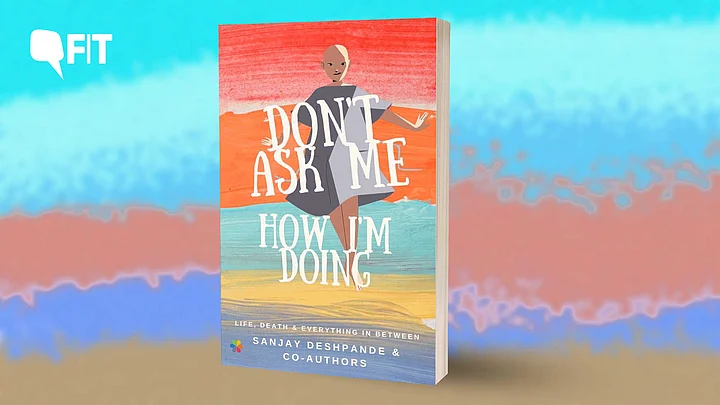(This is an excerpt from ‘Don’t Ask Me How I’m Doing: Life, Death and Everything in Between’ is a book on ‘Adulting with Cancer’, an anthology of stories chronicling the journeys of seven Indian young adult cancer patients, survivors and caregivers, published by LetsAuthor.)
Coming out is never a one-time event.
It's similar to a queer person’s experience, you have to keep revealing your status to new people for the rest of your life, if you think they matter or need to know. There’s also no telling how they’ll respond.
I hate having to repeat myself, at least to the ones I know or who know me, which is why I prefer being publicly out. Hence, my decision to reveal my status to everyone on social media and through this book.
I also got a beautiful, difficult to ignore, large tattoo on my right forearm on my 30th birthday to commemorate my experience: it’s a top view of the brain’s hemispheres with flowers growing out of the right side where my tumor was excavated from – signifying post traumatic growth – along with the text “seize the day” under it, a pun on my seizures and a mantra for life: do all that you want to do now because the future isn’t promised to anyone.
Pretty in-your-face, but that’s just who I am as a person – bold and gutsy. However, I have several cancer buddies around my age who don’t choose to be out like me.
My ability to do so is based on several intersectional privileges, which I am aware of and acknowledge openly. Others prefer to keep their status to a close circle of family and friends, and maybe their immediate team at work.
Some even choose not to reveal it at all, especially if they have been cured. A few worry that letting people know at all might adversely affect their career and romantic lives, which might be a fair assessment.
Using relevant vocabulary to communicate your status is a significant decision as well. Some call themselves 'patients' even after active treatment if they haven't been completely cured. But this makes me feel perennially sick.
Others prefer using 'fighters/warriors', suggesting they are battling an enemy. But there is often no external threat, so how can I be at war with myself?
A few call themselves 'thrivers', implying that they are flourishing due to/despite their cancer. This puts too much pressure to inspire others, which I don't like.
There's 'terminal', which means someone has tried everything and is at the end of their life. That's not me.
Most call themselves 'survivors', suggesting that they live on despite coming close to death. I use this often.
A new one is 'living with chronic cancer' implying that their type is similar to chronic illnesses like type 2 diabetes or hypertension.
This resonates the most since there is a chance that my type might rear its ugly head again but can be treated if it did. I use the last two interchangeably where appropriate, but I haven’t even completed a year since my diagnosis or treatment, so I might change my mind later based on a change in my status or an evolution in my thinking.
I have simplified my journey for the sake of brevity, it certainly wasn't linear and was punctuated with several bouts of grief and depression.
I want to paint an honest picture and not shy away from admitting that I was often a mess and it hurt like hell at times.
Feeling like a pendulum is an accurate description of my actual journey, swinging between the good days and the bad days.
Do I ever regret telling the world? Sometimes, especially when I consider my career and dating prospects.
I also worry if I have in some ways made my diagnosis my identity/identifier – the man who had/has brain cancer.
But few experiences in life affect you this way.
So I tell myself that while I have multiple identities, this just happens to be the most salient one that affects every aspect of my life for the rest of it, hence, it's okay. There is no single way to deal with whether or not you choose to disclose your diagnosis, including who, when, what and where.
I hope my story illustrates one way to do so and helps you figure out if this works for you.

